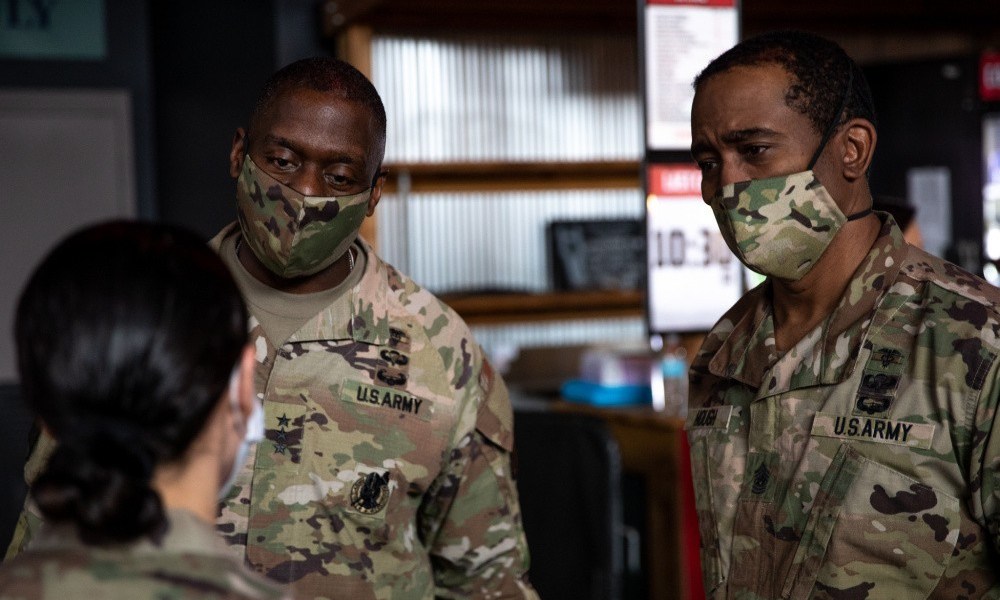News
Hundreds of thousands of US troops have allegedly yet to comply with vaccine mandate

Hundreds of thousands of U.S. service members remain unvaccinated or only partially vaccinated against the coronavirus as the Pentagon’s first compliance deadlines nears.
Overall, the military’s vaccination rate has risen since August, when Defense Department leaders, acting on a directive from President Biden, by informing the nation’s 2.1 million troops that immunization would become mandatory, exemptions would be rare and those who refuse would be reprimanded. Yet troops’ response has been mixed, according to data assessed by The Washington Post.
90 percent of the active-duty Navy is fully vaccinated, whereas just 72 percent of the Marine Corps is, the data shows, even though both services share a Nov. 28 deadline. In the Air Force, more than 60,000 personnel have just three weeks to meet the Defense Department’s most ambitious deadline.
Deaths attributed to Covid-19 have soared in parts of the force as some services struggle to inoculate their troops. In September, more military personnel died of coronavirus infections than in all of 2020. None of those who died were fully vaccinated, Pentagon spokesman Maj. Charlie Dietz said.
Military officials explain the variance in vaccination rates, in part, by pointing to the staggered deadlines each of the services set for personnel to comply while expressing optimism that, as those dates approach, numbers will quickly rise and a vast majority of troops will carry out their orders. Thousands of troops already have begun their two-shot regimens, like in the Navy, where 98 percent of active-duty sailors have received at least one dose, officials said.
“The Army’s policy is incentivizing inaction until the latest possible date,” said Katherine L. Kuzminski, a military policy expert at the Washington think-tank Center for a New American Security, citing plans that require Army Reserve and National Guard personnel to be fully vaccinated more than eight months from now. Coronavirus vaccines have been widely available since the spring. “The way we’ve seen the virus evolve tells us looking out to June 30 may need to be reconsidered,” Kuzminski said.
Terry A. Hurlbut has been a student of politics, philosophy, and science for more than 35 years. He is a graduate of Yale College and has served as a physician-level laboratory administrator in a 250-bed community hospital. He also is a serious student of the Bible, is conversant in its two primary original languages, and has followed the creation-science movement closely since 1993.
-

 Executive4 days ago
Executive4 days agoSecret Service chief gets no solace
-

 Executive3 days ago
Executive3 days agoWaste of the Day: Louisville Taxpayers Pay Nearly $600,000 For Empty Building’s Maintenance, Security
-

 Guest Columns5 days ago
Guest Columns5 days agoFear Itself: Democrats’ Favorite Strategy Caused Their Current Chaos
-

 Executive3 days ago
Executive3 days agoWhere is Joe Biden – or Jill?
-

 Executive2 days ago
Executive2 days agoWaste of the Day: Throwback Thursday: Cities Used Crime Prevention Funds on Soccer Games, Paper Shredding
-

 Executive2 days ago
Executive2 days agoFacile and politically motivated suggestions
-

 Civilization5 days ago
Civilization5 days agoBuild Iron Dome in the United States To Prepare for Israel’s Worst Day
-

 Executive1 day ago
Executive1 day agoBiden makes farewell whisper














